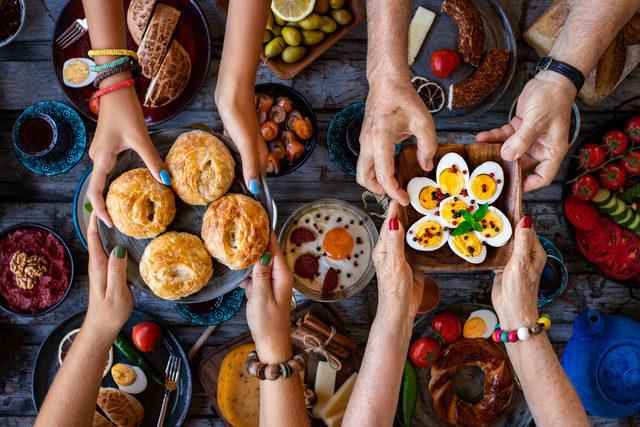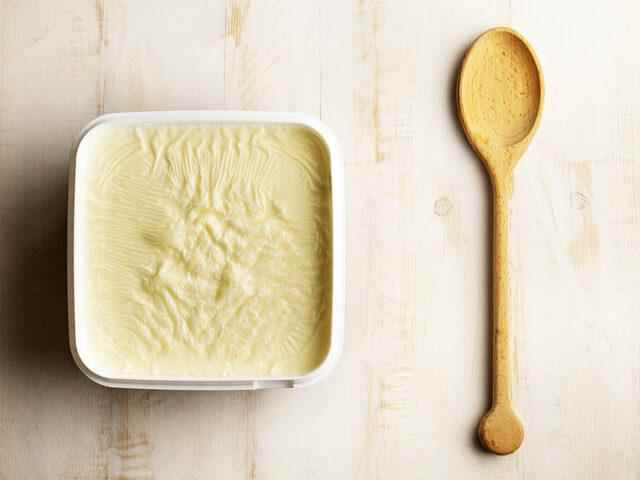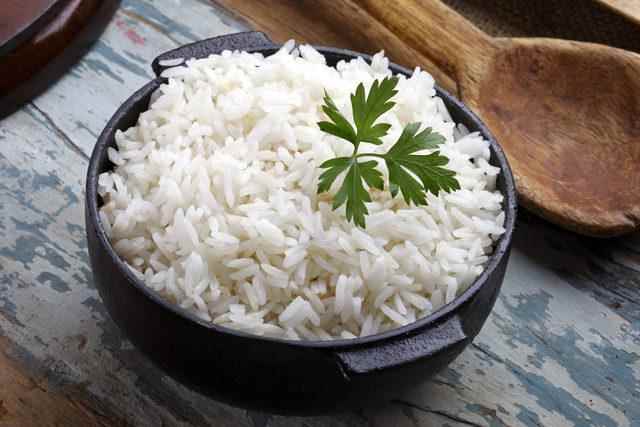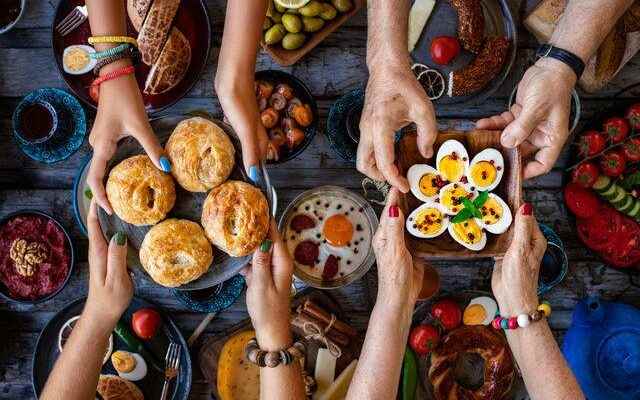Proper nutrition can also prevent the weight gained during Ramadan. So what will we consume in sahur, iftar and after?
WHITE CHEESE TOAST WITH WHOLE GRAIN BREAD
Toast or sandwich made with whole grain bread and feta cheese at sahur prevents the feeling of hunger until iftar and helps you stay full. One of the most important reasons for this is that whole grain bread has a higher saturation rate and can keep it fuller than white bread.
1 OR 2 EGGS KEEP FULL ALL DAY
In Ramadan diet, it is necessary to consume foods that provide long-term satiety and are high in nutrients. After breast milk, the egg, which is the highest quality protein source, is one of the most important nutrients that will provide a feeling of satiety throughout the day. Consuming 1 or 2 eggs in the form of boiled, omelette or menemen during sahur helps you maintain your energy until the iftar.
WALNUT AGAINST HUNGER FORGOTTEN
Walnuts are one of the most important Omega 3 sources. Omega 3 fatty acids also have the feature of providing a feeling of satiety for a long time. For this reason, one of the most important foods to be consumed in sahur is walnuts. 2-3 walnuts in sahur make the period up to iftar to pass more vigorously. If you complain of forgetfulness and lack of concentration due to hunger, especially in the afternoon, do not miss the walnuts from your sahur table.
DON’T MAKE DATE as a mid-meal
Dates are undoubtedly one of the first foods that come to mind when Ramadan is mentioned. Dates, which are indispensable for iftar, balance glucose, which is the body’s energy source after long-term fasting. 2 dates eaten in iftar is enough to correct low blood sugar. You can also consume dates as a snack for a balanced blood sugar throughout the day in Ramadan. For example, a few hours after iftar, a drink with 2 dates, warm milk and cinnamon will help you store energy as well as balance blood sugar.
OVERCOME THE SWEET CRISIS AFTER IFTAR WITH FRUIT
Fresh fruits are a complete source of vitamins and minerals against the feeling of extreme tiredness that may occur between sahur and iftar. Fresh fruits, which help regenerate cells especially during long-term hunger, will also help you stay away from empty calorie desserts that become a habit after iftar. For this reason, between iftar and sahur, definitely consume fresh fruit and a snack from the milk group to balance blood sugar.

DRINKING MILK IN SAHUR ACCELERATES METABOLISM
Nutrition and Diet Specialist Merve Gizem Bahçıvan draws attention to the fact that milk, which is sometimes not preferred because of the thought of being heavy at sahur, actually meets the need for protein and calcium throughout the day, and says, “A glass of milk drunk at sahur cuts the appetite and prevents the metabolism from slowing down.”
YOGURT TO LOSE WEIGHT IN RAMADAN
Especially on summer days when the weather is very hot, it is important to consume liquid foods because water loss is more during fasting. For this reason, do not separate the tzatziki and ayran, which are indispensable in the summer months, from your iftar table. Drinking 1 bowl of tzatziki or 1 glass of ayran in iftar both refreshes you and strengthens your metabolism. In addition, the yogurt group accelerates the burning of fat in the abdominal region due to the calcium and conjugelinoetic acid it contains. Especially 1 bowl of yogurt consumed 2 hours after iftar helps to reduce weight gain in Ramadan.

KEFIR FOR DIGITAL SYSTEM TWO HOURS AFTER IFTAR
Prolonged hunger during Ramadan and then eating all at once can cause digestive system problems. You can prevent this with supplements such as kefir and probiotic yogurt. It is very important to take probiotic support, especially for the prevention of disorders such as constipation, gas and bloating. A glass of kefir you drink 2 hours after iftar will be effective in regulating your digestive system.
RICH NUTRITIONAL SOURCE CHIA SEED
Don’t ask what’s wrong with chia seeds at the traditional Ramadan table. The abundant fiber, calcium, protein, antioxidant and Omega 3 content of chia seeds prevents your energy from falling. At the same time, you can maintain the feeling of satiety all day long when you eat chia seeds, which come into a satiating consistency when it comes into contact with water, by mixing it with milk, yogurt or water.
STAY AWAY FROM RICE
For iftar, instead of rice pilaf or pasta, you can choose bulgur, quinoa or buckwheat, which are much higher in protein and fiber content. In this way, you can both keep your blood sugar in balance and prevent the heaviness that occurs after iftar.

RELIEF FROM HUNGER STRESS WITH OATMEAL
Preferring foods with low glycemic index during Ramadan is very important for regulating blood sugar. For this reason, oatmeal is among the foods that help maintain energy by balancing blood sugar. At the same time, it reduces stress, increases concentration and strengthens memory with its B vitamin content.
HERBAL TEA AGAINST THE WEIGHT AFTER IFTAR
Of course, not all herbal teas. Digestive system problems can occur because eating is limited to a short time during Ramadan. You can drink fennel and anise tea to relieve these problems. These teas can be preferred not only after iftar but also during sahur. You can also drink Rooibos tea, which has a caramel-like taste, instead of dessert after iftar.
